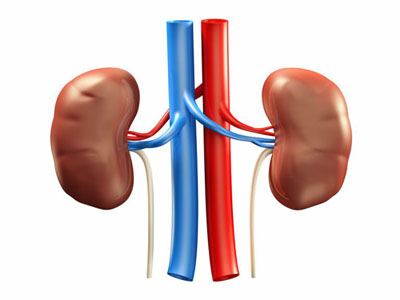few cadaver transplants have been performed.The short term risks of donation are those associated with any major surgery, including the risks of general anesthesia, wound infection, and the possible need for a blood transfusion. These risks are very small in healthy people. The donor evaluation process is designed to identify any special factors The remaining kidney expands and takes over the function previously performed by two. Because most kidney diseases affect both kidneys simultaneously, the donor is not at increased risk of kidney failure should he or she contract such a disease. Donors are cautioned to avoid contact sports or other activities which could cause major trauma to the remaining kidney. We believe that donors will lead perfectly normal lives.
In a kidney transplant your kidneys are left in place. The new kidney is placed lower down .It is rarely necessary to remove your own kidneys prior to transplantation. This may be required if you have severe high blood pressure uncontrollable by medication and dialysis, or if your kidneys are chronically infected.However, whenever possible, your own kidneys will be left alone. Even if not functioning normally, they continue to make erythropoietin, a hormone your body requires to make red blood cells, and they may make some urine. This is particularly important if your transplant should fail.

You will be under general anesthesia throughout the surgery which usually takes two to three hours. Once asleep, the transplant surgeon will make an incision on the right or left side of the lower abdomen just above the groin, place the donor kidney into the abdomen and connect the kidney's blood vessels to the recipient's iliac artery and vein. Then connect the ureter to the bladder. A small drain may be placed into the abdominal cavity to drain any excess fluid. A small plastic tube is often inserted into the ureter to prevent it from getting Donor EvaluationThe Operation Procedure4blocked. After a successful transplant, there is no need for dialysis, provided the transplant continues to work well. After you have a successful transplant you should feel better and have more energy.
There may still be a need to watch your diet to protect the kidney. If all is well, you will be able to eat and drink the following day. Most patients will remain in the hospital for one to two weeks following transplantation. Recovery from the surgery itself is generally rapid. Patients are encouraged to be out of bed on the day following surgery, and many are eating solid food within two or three days. However, the possibility that the kidney may not work right away, and the risk of rejection, may prolong your hospitalization.




